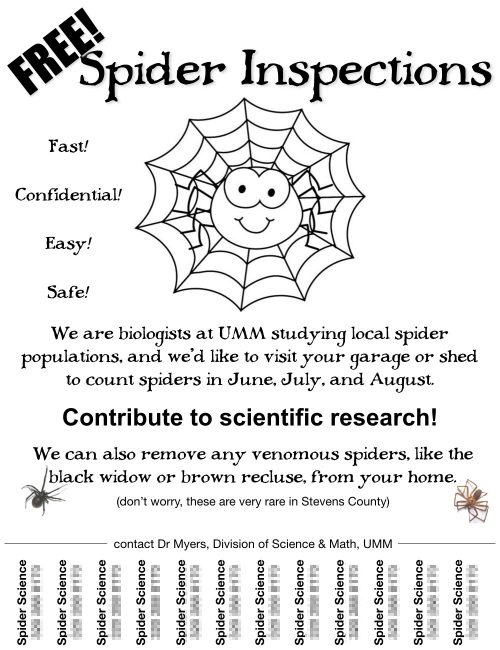We’re getting close. This week I’m training some students (and myself) in spider classification, and then the week after we’re going to start charging into local residences to sample spider populations, with the goal of getting an estimate of the distribution of synanthropic species and making a baseline measurement of how their numbers change over the summer. So today I’m making signs that we’ll hang up around town to get volunteers.
I’ll be curious to see if my phone starts ringing madly or if I get nothing but silence — I don’t expect a lot of enthusiasm in the community for someone finding spiders in their homes, but maybe they’ll be curious. If I get no response, my backup plan is to show up in some neighborhoods and do some good old-fashioned door knocking.
This isn’t the only project I’ll have going this summer — we’re also going to do some laboratory work with developing P. tepidariorum. Anyway, I’m about to get busy.





